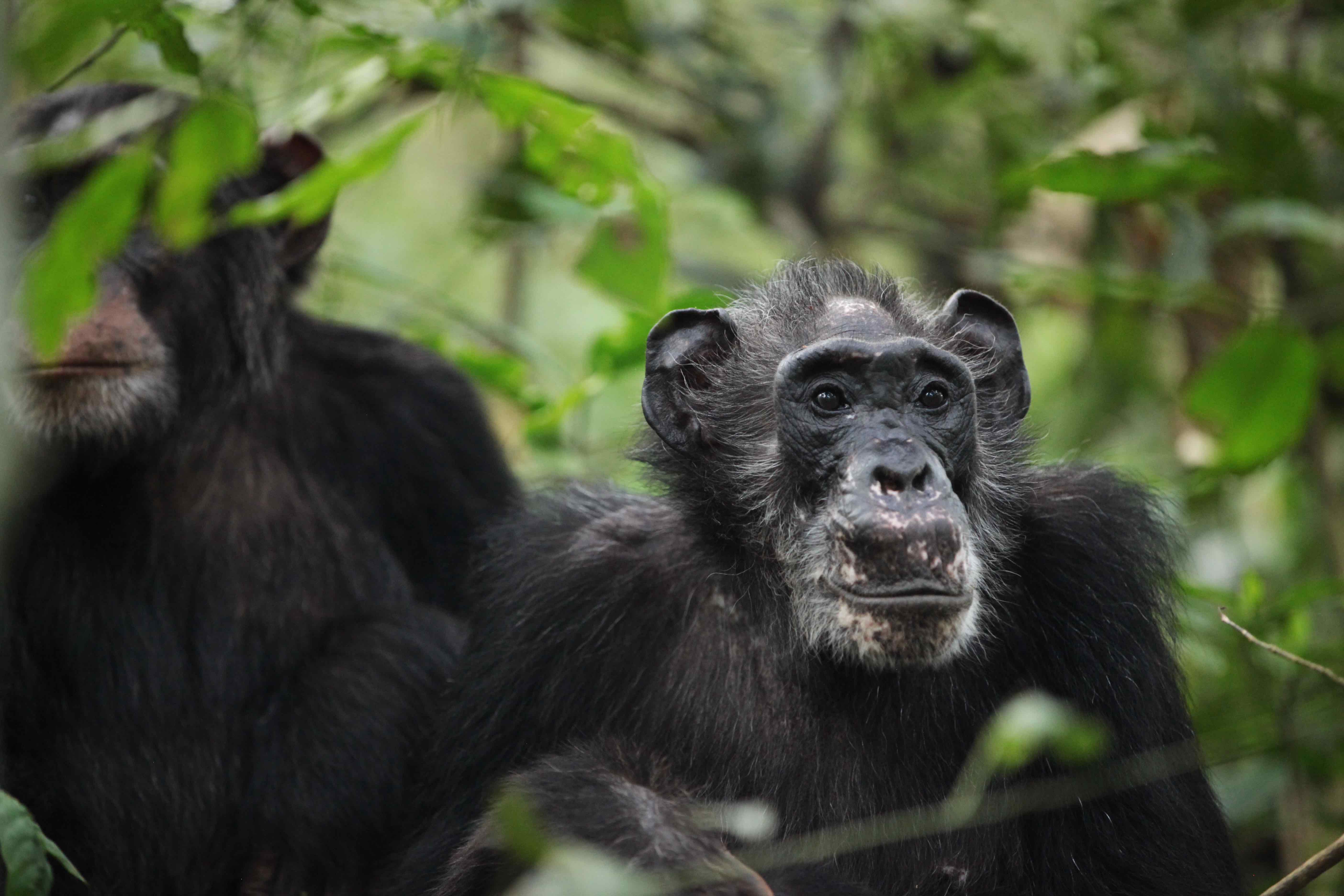Reactions: study reveals menopause in female chimpanzees
The vast majority of mammals remain fertile until the end of their lives. Humans and some species of whales deviate from that norm and do go through menopause. Now, research published in Science reveals that menopause exists in female chimpanzees, too, and that it lasts for a fifth of their adult lifespan. To reach these conclusions, the research team observed 185 female chimpanzees between 1995 and 2016 in Uganda's Kibale National Park and measured hormone levels in urine samples from specimens of various ages.

Ma Rainey, a post-reproductive female of the Ngogo community of chimpanzees in Kibale National Park, Uganda, and her adult son Wes. Photo: Kevin Langergraber, Arizona State University.
Pluvio Coronado - chimpancés EN
Pluvio Coronado
professor of Obstetrics and Gynaecology at the Universidad Complutense de Madrid, president of the Spanish Association for the Study of Menopause (AEEM)
This article clears up possible doubts about the exclusivity of menopause in humans, and concludes that menopause also exists and manifests itself hormonally in the same way in primates. However, although the study presents a long observational period, it cannot control for the observational bias of tending to find results that were already assumed to be found, and the bias of being limited to the opinion of a particular group of researchers. Among the findings, the researchers find that the post-reproductive period is shorter than in humans, at 20% of the species' lifespan. In humans, due to longer life expectancy, this post-reproductive period is usually around 30% of a woman's lifespan.
With respect to the 'grandmother hypothesis', the behaviour of chimpanzees can be perfectly correlated with the current post-reproductive period of women; since also, in the case of humans and as a consequence of increasing childbearing age, the older grandmother figure is less and less involved in the upbringing of her children's children (her grandchildren).
Another limitation, but which makes sense to avoid invasive testing, is the determination of chimpanzee hormone levels in urine samples. Previous work has shown a correlation between hormone measurements in urine and those found in blood, but in many cases they are not entirely accurate; indeed, in humans, hormone determinations in blood rather than urine are used.
The strength of this work is that it may open up new lines of research in menopause, as studies can be carried out in primates.
Antonio Cano - chimpancés EN
Antonio Cano
Professor of Obstetrics and Gynaecology in the Department of Paediatrics, Obstetrics and Gynaecology
This is a solid study, supported by sound methods and with few limitations. Isolated cases had been described, but not a whole population consisting of groups of chimpanzees in the wild. This study also shows that in chimpanzees, a species close to humans, the life span beyond the end of reproductive capacity also occurs naturally.
[The 'grandmother hypothesis'] seeks to justify an evolutionary advantage in that [older females] could contribute to the care of offspring while the mothers provide food and other benefits required for survival. That advantage, which has been used to justify [menopause] in killer whales, is not confirmed in this study.
The study does not confirm that it is a group survival advantage, because female chimpanzees leave the colony when they reach adult reproductive age. It could be a marker of good, or at least minimal nutritional status.
Brian M. Wood et al.
- Research article
- Peer reviewed
- Observational study
- Animals



